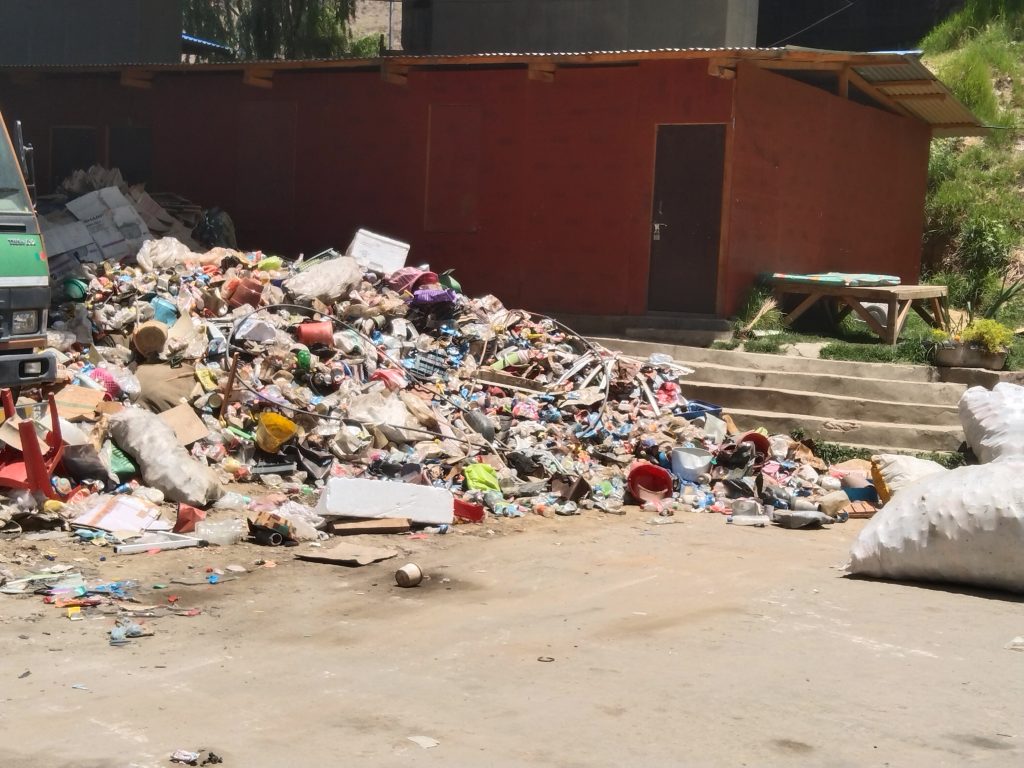Waste segregation is the sorting of waste into different categories for ease of collection, sorting and disposal
What has made waste management a daunting task in the capital city is because of not many households practicing waste segregation properly, according to those managing and collecting waste in Thimphu.
Waste segregation is, meanwhile, the sorting of waste into different categories for ease of collection, sorting and disposal.
A Thimphu Thromde official, Ugyen Tshewang said, “Segregation of waste at the source into various types is very important and every individual must be aware of this.”
“But the public throws mixed waste into garbage compactors despite having different collection schedules for different waste, which is dry and wet collection days,” he said.
With not many people segregating waste, the salvagers are not able to properly segregate waste, resulting in an increasing amount of incoming waste into the landfill.
The Thromde official said illegal littering and dumping of waste has become very challenging where waste is dumped even in places with signboards saying that littering is prohibited.
He added that cooperation from the public also plays a bigger role and some people leave waste outside before the vehicle arrives. They don’t take ownership and waste is being rampaged by stray dogs; making the streets dirty.
He said that waste service providers are sometimes not able to cater to all the specified areas due to frequent breakdown of the garbage compactors. Changing of waste personnel also causes service providers to miss their regular routes; resulting in non-collection of waste in some areas, according to the official.
Greener Way’s Director of Operation, Ugyen said, “All the issues are because of the limited garbage collection trucks, but we hope the issue will get solved very soon now with the arrival of garbage compactors.”
Further, he said people drop their waste at one of the nine DoCs (Drop off Centers), which have been established in Thimphu’s core areas.
“The public can drop their waste at a DoC,” he added.
Meanwhile, Thromde has received new garbage compactors and soon it will be given to the waste service providers.
Thromde said that lack of awareness regarding segregation of waste can be one issue with the public even though awareness has been done multiple times over the years.
An official from the National Environment Commission (NEC) also said that they are currently having a tough time in convincing people to segregate their waste and also take responsibility for their own waste.
“Waste management in the country will be successful only with the proper segregation of waste by every individual,” the official said, adding that segregation helps to save time, resources and it reduces the amount of waste that goes into the landfill.
Ugyen Tshewang said, “Segregation helps people to understand the kinds of waste generated by the household, and subsequently take measures in order to reduce and reuse the waste.”
“For example, buying a basket or cloth bag if more plastic bag waste is generated, or reusing old washed oil containers as water pails instead of buying actual water pails,” he added.
Ugyen from the Greener Way said, “Segregation helps the waste collection service providers to differentiate between the types of waste and where they should go after the collection.”
According to Thimphu Thromde’s Assistant Environment Officer, Lekzang Jayoed Dorji, segregation helps to reduce stress on the landfill since recyclable waste can easily be taken from the segregated waste stream, while the wet waste can be used as compost in kitchen gardens and it also helps various individuals and businesses in the waste sector to operate easier.
“Few people are not aware of the importance of waste segregation and also their psychological behaviour depends on it,” said Greener Way’s Ugyen.
According to the Thimphu Thromde, it has come up with various plans and strategies aside from flagship programs to overcome the challenges of waste management through installation of CCTVs and strict monitoring of recurring illegal dump sites and use of volunteers to help monitor the situation, among others.
A proper transparency platform is also maintained for reporting and resolving the issues among the service providers, public and the Thromde.
After the construction of the DoCs, the Thromde states that it has also currently started an awareness program on the entire DoCs for two weeks.
According to the Greener Way, they collect about 18 tons of waste per day from the core areas of
Thimphu.
Sherab Dorji from Thimphu












